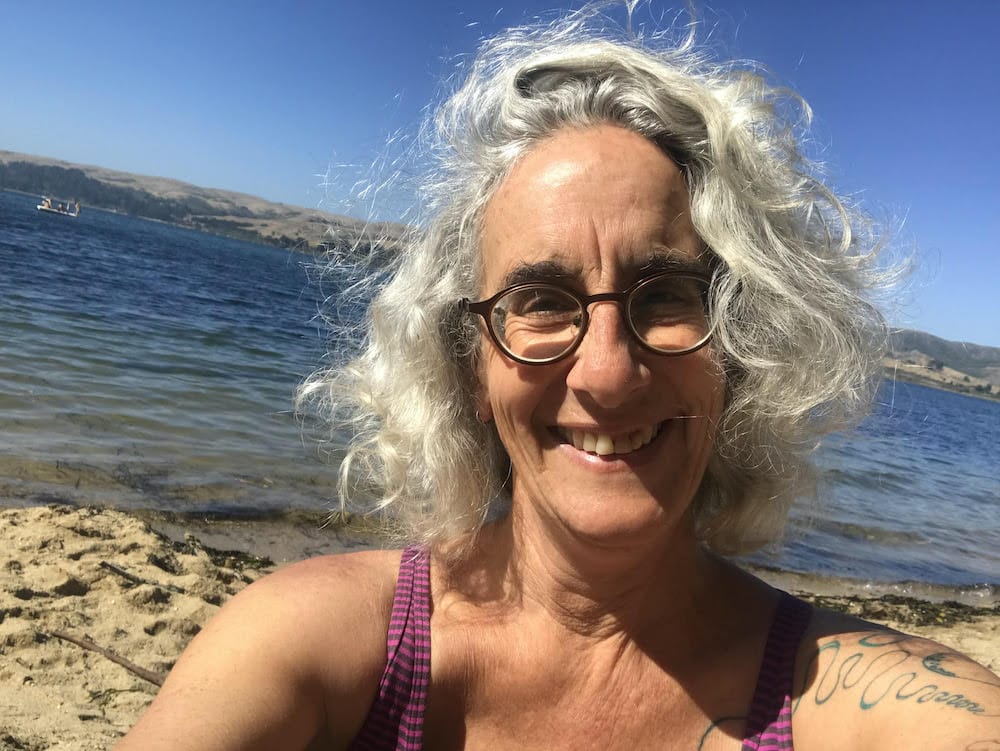Urban Homesteading

Author Rachel Kaplan wrote a book about Urban Homesteading, and I couldn’t resist sitting down with her for “The Positive Fantastic” to discuss her literary contribution to the sustainability movement. When I first arrived at Rachel’s place, the view on high of Sonoma County’s hillsides made me pause to catch my breath. With that stunning backdrop, we started chatting while we harvested a big bowl of blackberries to munch on. Then, after some time thumbing through her book (which I haven’t read yet, but which she handed me that day), we sat down to podcast about urban homesteading.
Rachel and I are new friends, and yet she has just the right magic for me at this time in my life. Coming off of seventeen years living in the countryside, managing a very large rural homestead, I’ve suddenly been thrust into the need to live in town where my teenager can easily socialize with his peer group. Both my son and I are adjusting to what this new location holds for us and what it means to be in a neighborhood. As the lessons unfold, I’ve been spending a lot of time contemplating how to play with a smaller backyard canvas.
While I can in theory translate my vast experience to an urban setting, I actually found it very helpful to have this conversation with Rachel about what it means to be urban homesteading. She brought up some great points for me as an urban homesteader that I hadn’t thought about, and I’m excited that we got to share this conversation. So many folks live in cities, and consequently, learning how to be resilient with regard to (more) sustainable food systems in urban areas makes absolute sense for the majority of people on the planet.
She asked me what ideas I had about urban homesteading, and I got to discuss my grand plans for my new town rental, including the hugelkulture I intend to build. I referenced the “Regeneration with Hugels” episode with Josh Khankhanian because I am always a lover of spreading the gospel of hugels!
FInally, in the podcast interview, one of the pieces that came up in regard to food systems and privilege was how urban homesteading can support well being for folks that might not otherwise be enfranchised to have access to good food. I mentioned the phrase food deserts in the episode, but knew that there was a more up to date expression that I couldn’t remember at the time. Now, having done some research, memory refreshed, I wanted to just add that the term I was looking for is “Food Apartheid.” It goes into a more precise critique regarding the oppressive systems that have made access to food nearly impossible for many people in modern society, especially, disporportionately, people of color.
Recent Comments